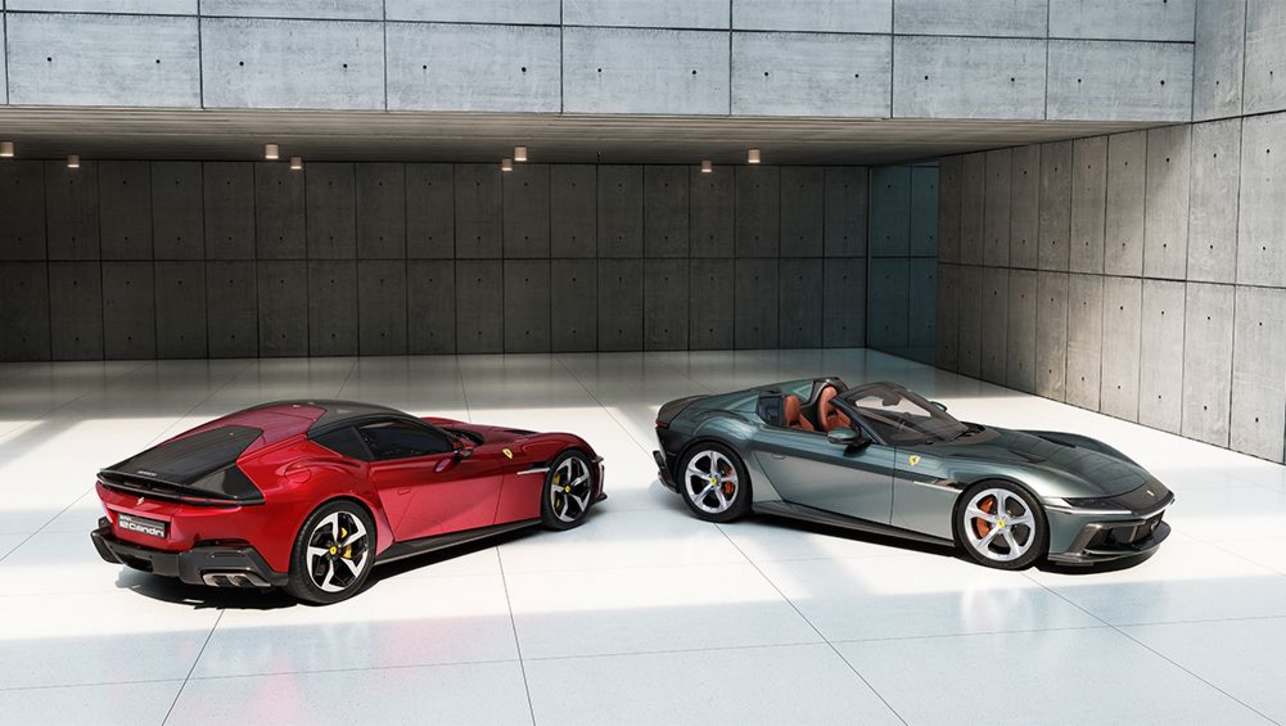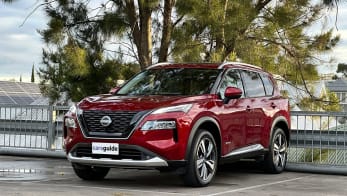Yes, this is yet another story about the 2023 new-car sales data - but this one is different, I promise.
We've already told you about Toyota's sustained success at the top of the sales charts and Ford's big year with the Ranger, but our recent deep dive into Hyundai's sales got us thinking. When we combined both Hyundai and Kia's sales, as they both fall under the same parent company (Hyundai Motor Group) the two leap from fifth and fourth place, respectively, to the second best-selling car company in Australia.
So, what else would change if we looked at the sales as groups rather than individual brands? For example, Volkswagen on its own doesn't feature in the top 10 brands, but what would happen if we considered it Volkswagen Group and added together Audi, Skoda, Cupra and the other brands that fall under the same umbrella?
Well, we got the calculator out and found out, the results may surprise you...
1. Toyota Motor Corporation - 230,432 units
Well, not all the results may surprise you. Funnily enough the brand that outsells its nearest rival better than two-to-one stays on top when you add in the sales of luxury sister brand Lexus.
Lexus may have 'only' added 15,192 sales to Toyota's 215,240, but 2023 was a great year for the premium brand. Sales were up more than 114 per cent on the back of a booming NX and RX SUV one-two punch.
Perhaps the only good news for Toyota Group's rivals is that its third brand, Daihatsu, isn't currently selling cars in Australia.
.jpg)
2. Hyundai Motor Group - 153,219 units
One of the big winners of this concept is the South Korean giant. The combination of a surging Kia, a steady Hyundai and the rising Genesis elevates the Group to second place on the chart.
It's not entirely surprising though, as Hyundai has already firmly established itself as one of Australia's favourite brands and Kia has been on the rise in the past five years. Genesis is still only a small percentage of the overall total, and will likely never get close to the mainstream brands, but does have potential to add not-insignificant incremental growth as it establishes itself against the likes of Lexus, Volvo and Tesla.
3. Renault-Nissan-Mitsubishi Alliance - 110,911 units
Perhaps the biggest winner in a holistic sense is Renault, with its 'alliance' with Mitsubishi and Nissan rocketing it up the sales charts all the way to third place. This trio is anchored by Mitsubishi (63,511) but with Nissan providing a healthy boost (39,376) and Renault topping up the final tally (8024).
While Mitsubishi finished 2023 in sixth place on the sales charts, neither Nissan nor Renault could crack the top 10 on their own.
.jpg)
4. Mazda Motor Corporation - 100,008 units
Mazda isn't part of any group, having split from Ford in the aftermath of the 2008 global financial crisis, so it has to fight alone. So even though it drops from second to fourth, it's still clearly a very popular brand in Australia.
5. Ford Motor Company - 87,800 units
The Ranger Car Company, sorry, Ford Australia drops two spots in this reimagined sales record. Tongue-in-cheek quips aside, the result is actually very impressive for a brand that relies so heavily on a single key model.
There's near-zero chance Lincoln arrives here anytime soon, but if Ford could send some more popular mid-size SUVs down under the Blue Oval brand could crack six-figures.
6. Volkswagen Group - 81,146 units
Another big riser in this adjusted measurement, but not a surprising one given the size of the Group. Volkswagen, Skoda, Cupra, Audi, Porsche, Bentley and Lamborghini all get tallied together for this result.
Volkswagen still makes up more than half the total sales, and just misses out on a top 10 spot with its own record (43,821), but Audi adds in nearly 20,000 (19,039) and Skoda has grown steadily (7999).
.jpg)
7. SAIC - 79,644 units
One of the reasons these larger groups are often looked at as individual brands in Australia is because locally they have different business structures, and this is a good example. The Chinese-state owned SAIC operates both the MG and LDV/Maxus but not here. Locally MG is run from the factory but LDV is part of the Ateco Group in Australia (the same distributor of Ram, Maserati and Renault).
But regardless of how they operate here, both brands are on the rise with Australian buyers. LDV sales were up more than 30 per cent in 2023 and MG was up more than 17 per cent. However, despite adding the two brand's sales together, SAIC remains in the same seventh spot that MG already occupied on its own.
8. Tesla, Inc. - 46,116 units
The tail end of our top 10 list actually mirrors the actual finishing order, with these three standalone brands all enjoying strong sales in 2023. Tesla has obviously locked up the lion's share of the electric vehicle market but will likely need a big boost from the facelifted Model 3 to move further up the sales charts.
9. Subaru Corporation - 46,114 units
As explained earlier, not all of the international conglomerates are under the same umbrella in Australia. Subaru Australia, for example, is part of Inchcape Australasia alongside Citroen and Peugeot, which are part of Stellantis globally.
Even so, just measuring Subaru on its sales alone (as it has no partners or sub-brands) is still good enough to retain its ninth place.
10. Isuzu Motors Ltd - 43,341 units
Like Ford, Isuzu Australia relies largely on a very small range - just two models, the D-Max ute and MU-X SUV - but it's enough for it to retain 10th place.
Beyond the top 10
Behind Isuzu there are some notable absentees from the top 10. Stellantis is one of the biggest automotive conglomerates, with a whopping 14 brands spread across such a diverse range from Ram to Lanica. However, even when you add together the eight brands (Ram, Citroen, Chrysler, Peugeot, Alfa Romeo, Fiat, Maserati and Jeep) that are currently for sale in Australia (Chrysler notched seven sales in 2023), it still only adds up to 17,664 in total - less than Mercedes-Benz managed on its own and barely ahead of Suzuki.
BMW Group - BMW, Mini and Rolls-Royce - fared better, notching a combined 30,522 sales. Another good team-up was the Geely-owned brands, Volvo, Polestar and Lotus, which tallied a total of 13,774 sales, which is a good result for what are largely niche brands.
The Tata-owned Jaguar Land Rover struggled with a steep decline for the leaping cat brand, meaning the pair combined 9006, with the off-road brand contributing the lion's share.



.jpg)



.jpg)



.jpg)
.jpg)









.jpg)
.jpg)




Comments